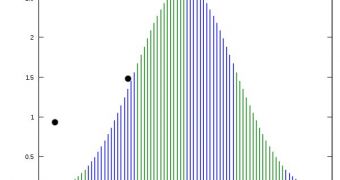Australian researchers from the University of Queensland have just recently released a new study, which seems to point out the fact that children whose fathers are older tend to score less in IQ tests than their peers, who were parented at an earlier age. The findings have been immediately contradicted by numerous people with high IQs, who have set themselves as examples, saying that their fathers were older than the average when they were conceived. The study team says that a few examples are not conclusive for the behavior of a larger population segment.
In other words, they share, the paper, which has been published in the March 10th issue of the online journal PLoS Medicine, is the result of a very large investigation, comprising over 33,000 test subjects. The team have only analyzed results obtained by the children in IQ tests, and even the researchers admit that a thorough, long-term study of the issue is in order, so that they could say for sure that the results they have presented yesterday are 100 percent accurate.
“The older a dad is, the worse his children tend to do in intelligence tests,” University of Queensland expert John McGrath, the leader of the study that has yielded the PLoS paper, adds. “We are concerned that older men accumulate more mutations in the developing sperm cells. These mistakes then pile up and increase the risks of problems in the children, and it is possible that these mistakes will carry on into the next generation,” the researcher stresses.
“It turns out the optimal age for being a mother is the same as the optimal age for being a father” New York University Medical Center researcher and psychiatrist Dolores Malaspina tells The Times. Thus far, scientists have believed that it doesn't matter when a man fathers children, as opposed to a woman, on account of the fact that males remain fertile for a longer time. However, no one has bothered to check if this is scientifically sound, so this study is probably only the first of a longer series.
One of the main critics the new paper has got is the fact that some believe it cannot be held as a prediction to how the children will develop their IQ later on in life. And while the QU researchers cannot argue with that per se, they do point out that a 2007 study showed that IQ levels in childhood were exhibitive of how this indicator would develop until mid-life.

 14 DAY TRIAL //
14 DAY TRIAL //